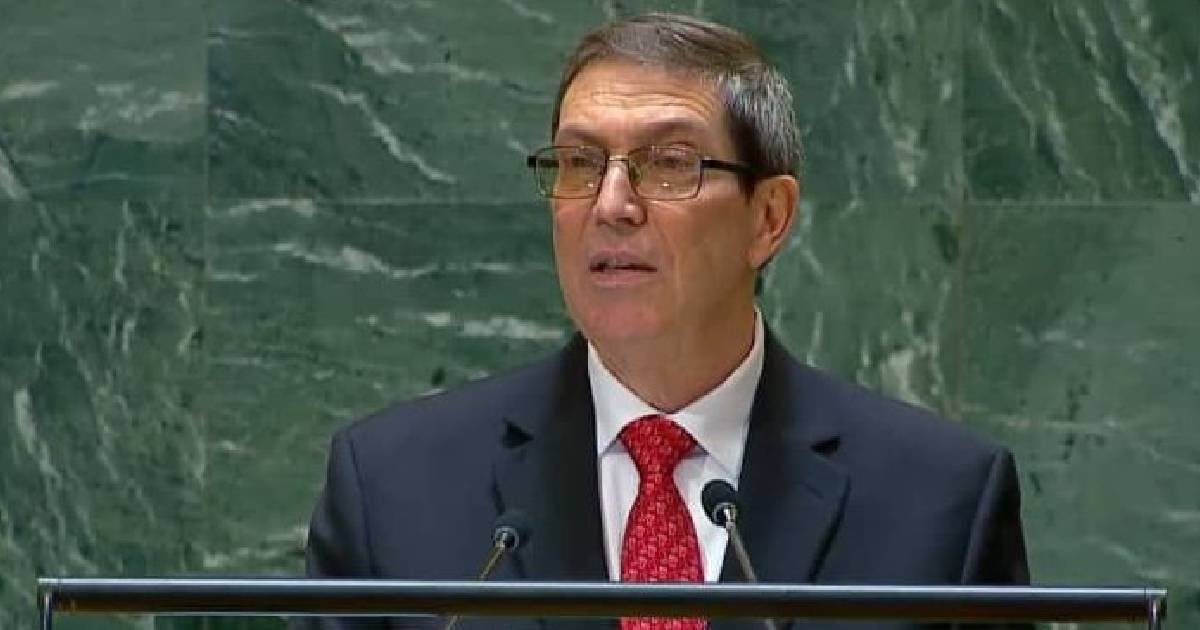
The Minister of Foreign Affairs (MINREX) Bruno Rodríguez Parrilla was the spokesperson, through an interview, trying to outline an external vision regarding the possible changes on the island, but the reality that the Cuban population is experiencing seems to be increasingly distant from official expectations.
Although Rodríguez Parrilla did not refer to concrete actions but rather used the recurrent verbiage found in the dialogues of the island's leaders, he did mention that they seek to change "in everything that is necessary," but "within the limits of our national culture."
From New York and interviewed by Newsweek, the Cuban chancellor described what the government considers efforts to change the economy.
Rodríguez Parrilla suggested that the key is not in the change itself, but in "where are we going to change?" and warned about the "semantic detonators" that have emerged amid what he describes as a global cognitive and moral crisis.
According to him, people are more concerned about their mobile devices than about thinking critically about their reality. However, this statement disconnects from the real concerns of the Cuban citizens, who are facing a severe economic and social crisis, where access to basic goods and the deterioration of infrastructure are everyday issues.
The minister emphasized that the changes the government wants to implement aim to "develop the common good" and strengthen social policies, although he acknowledged that it would be absurd to expect the consumption levels of a U.S. citizen with a secure and well-paid job. For Rodríguez, realistic changes are not aimed at improving living standards like those offered by developed capitalism, but rather towards a type of collective prosperity, where "spiritual goods" hold the same weight as material ones.
Nonetheless, this type of promise strays from the everyday experience of Cubans, who see how material goods, far from improving, have become more scarce and expensive in recent years. Furthermore, the growing emigration of young people reflects a lack of confidence that the dreams and life plans mentioned by Rodríguez can be realized within the current system. The disconnect between the minister's statements and social realities, exacerbated by the lack of significant changes in the economic sphere, is hard to ignore.
In his critique of the American perspective on change in Cuba, Rodríguez stated that it is not only "interventionist," but aims to restore a system of colonial exploitation similar to what existed before 1959. For the minister, the U.S. government aspires to "regain its banks, its large estates, its railway system, its mining companies, its telephone companies."
However, many inside and outside of Cuba question whether it is really the United States that is preventing the necessary reforms on the island, or if it is the country's own political and economic structure that has stalled any significant progress towards greater prosperity.
While the Cuban government insists that changes will come, the question remains whether these will be sufficient to address the deep shortages affecting Cuban society.
Rodríguez's words reflect an optimistic view within the framework of the Cuban government, but the reality on the ground continues to paint a picture of uncertainty and despair for many of its citizens.
What do you think?
COMMENTFiled under: